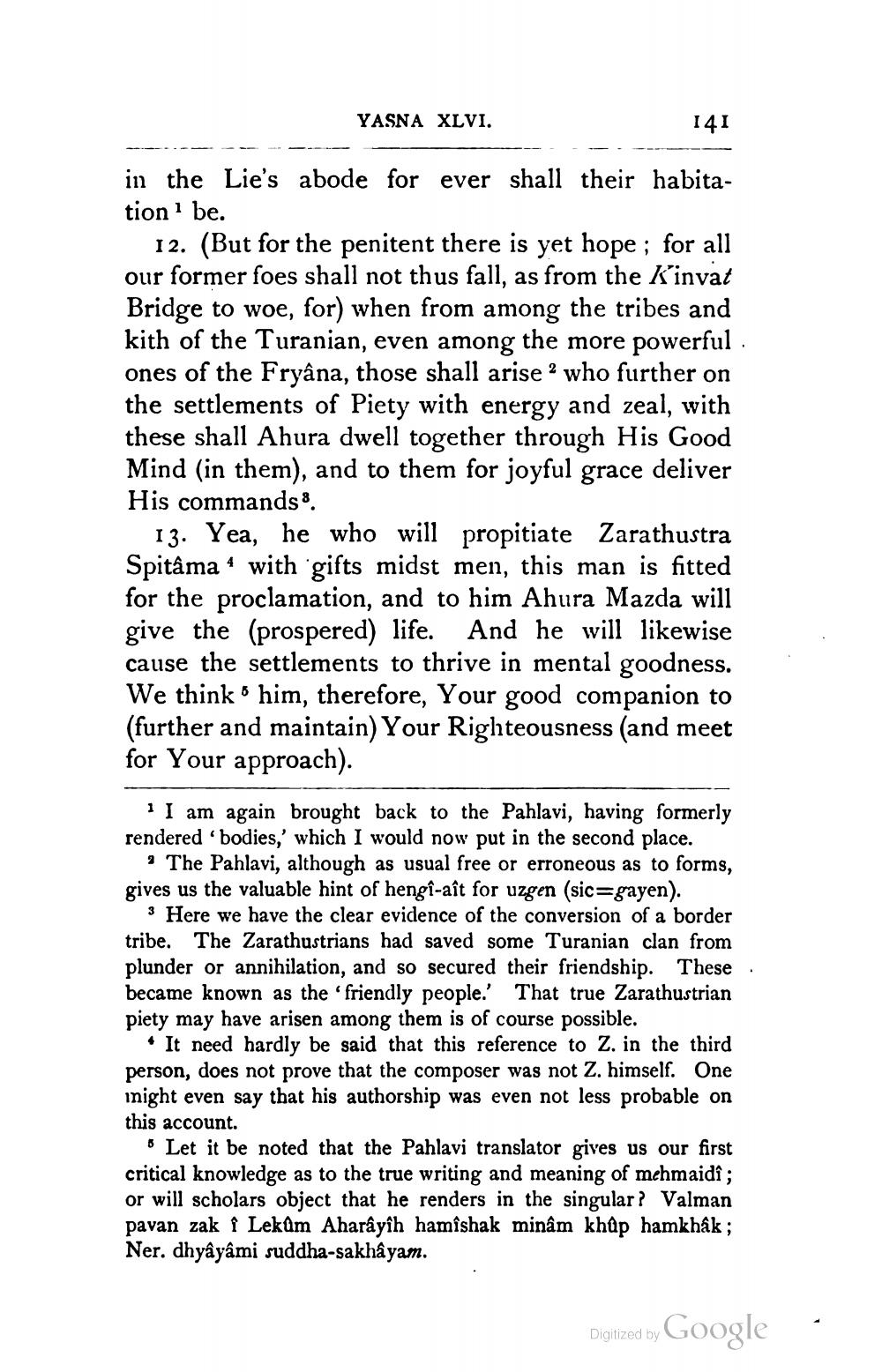________________
YASNA XLVI.
141
in the Lie's abode for ever shall their habitation be.
12. (But for the penitent there is yet hope ; for all our former foes shall not thus fall, as from the K'invat Bridge to woe, for) when from among the tribes and kith of the Turanian, even among the more powerful . ones of the Fryâna, those shall arise ? who further on the settlements of Piety with energy and zeal, with these shall Ahura dwell together through His Good Mind (in them), and to them for joyful grace deliver His commands 8.
13. Yea, he who will propitiate Zarathustra Spitâma 4 with gifts midst men, this man is fitted for the proclamation, and to him Ahura Mazda will give the (prospered) life. And he will likewise cause the settlements to thrive in mental goodness. We think him, therefore, Your good companion to (further and maintain) Your Righteousness (and meet for Your approach).
1 I am again brought back to the Pahlavi, having formerly rendered 'bodies,' which I would now put in the second place.
9 The Pahlavi, although as usual free or erroneous as to forms, gives us the valuable hint of hengî-aît for uzgen (sic=gayen).
3 Here we have the clear evidence of the conversion of a border tribe. The Zarathustrians had saved some Turanian clan from plunder or annihilation, and so secured their friendship. These. became known as the 'friendly people.' That true Zarathustrian piety may have arisen among them is of course possible.
• It need hardly be said that this reference to Z. in the third person, does not prove that the composer was not Z. himself. One inight even say that his authorship was even not less probable on this account.
Let it be noted that the Pahlavi translator gives us our first critical knowledge as to the true writing and meaning of mehmaidî ; or will scholars object that he renders in the singular? Valman pavan zak f Lekom Ahariyih hamishak minim khắp hamkhak ; Ner. dhyâyami suddha-sakhayam.
Digitized by Google
Digitized by
.




